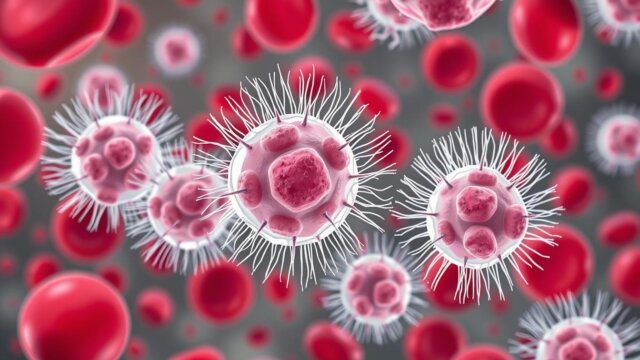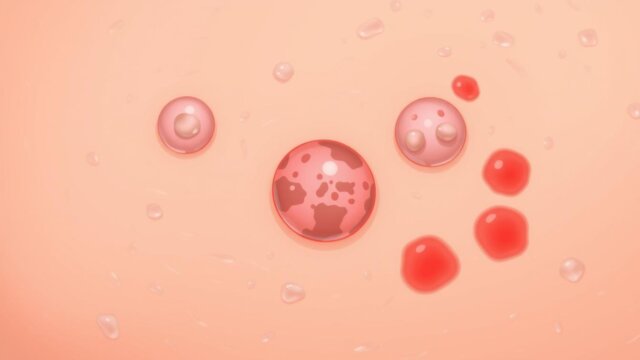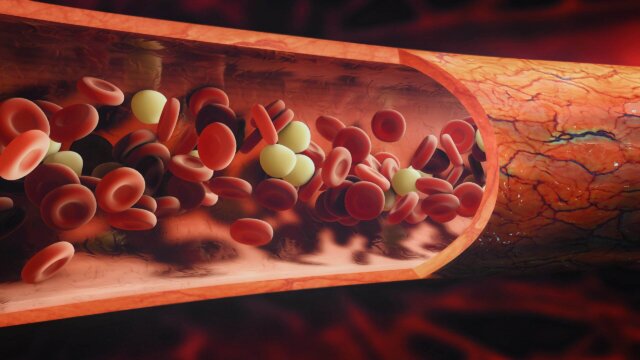FTC disclaimer: This post may contains affiliate links and we will be compensated if you click on a link and make a purchase.
Did you know that up to 59% of people with OCD also might have ADHD? These two conditions have similar signs, but they are different. It’s key to tell them apart for the right treatment.
ADHD mainly messes with how well you focus, if you’re organized, and finish things. OCD troubles people with the same awful thoughts or actions over and over. It makes them do things to feel better or less scared. This doesn’t help with the job at hand for someone with OCD.
Some studies say ADHD and OCD mess with the same brain path, but in different ways. One works too hard, the other not enough. This could be why they show different problems.
Key Takeaways
- ADHD and OCD are separate mental health disorders with different underlying causes and symptom profiles.
- ADHD is characterized by inattention, hyperactivity, and impulsivity, while OCD is marked by persistent obsessions and compulsions.
- Both disorders are linked to abnormal brain activity in the frontostriatal circuit, but with opposite patterns of hypermetabolism and hypometabolism.
- Comorbidity between ADHD and OCD is common, with up to 59% of individuals with OCD also having ADHD.
- Accurate diagnosis and appropriate treatment, involving a combination of medication and psychotherapy, are crucial for managing these complex conditions.
Understanding OCD and ADHD
Obsessive-Compulsive Disorder (OCD)
OCD is a mental health disorder seen through unwanted thoughts and repetitive actions. These actions aim to lower stress caused by the thoughts. They can make daily life hard for someone. The exact reasons for OCD are not all known. But, it seems to come from a mix of genes, brain workings, and things in the world.
Attention-Deficit/Hyperactivity Disorder (ADHD)
ADHD impacts both kids and grown-ups. Signs often show up in childhood and stay into adult years. The key signs include not being able to focus well, extra energy, and making quick choices. Like OCD, ADHD seems to be linked to genes, how the brain works, and outside influences.
Prevalence and Impact on Daily Functioning
OCD brings on strong thoughts and actions that repeat. These can really disrupt daily activities. Having both ADHD and OCD at the same time can make it harder for doctors to spot and treat. The way to handle both is often with a mix of drugs and talking with a therapist.
Statistic | ADHD | OCD |
|---|---|---|
Prevalence in Children | Not Provided | 21% have co-occurring ADHD |
Prevalence in Adults | Not Provided | 8.5% have co-occurring ADHD |
Comorbidity Range | Not Provided | 0% to 59% in individuals diagnosed with both disorders |
Rare Dual Diagnosis in Adults | Not Provided | Usually associated with a mediating condition like chronic tic disorder or Tourette Syndrome |
Decrease in Comorbidity in Adulthood | Not Provided | Two-thirds of children diagnosed with both ADHD and OCD experience a decrease in reported comorbidity rates |
Overall Comorbidity | Not Provided | 11.8% of those with OCD also have ADHD |
Children with ADHD can often get better with drugs that boost focus and talking with a therapist. OCD is often treated with a mix of special drugs and talking to someone who knows how to help, especially thinking differently. The drugs for ADHD might help with OCD too sometimes. But, it’s easy to mix up ADHD and OCD since their signs are alike.
Symptoms and Diagnostic Criteria
OCD Symptoms: Obsessions and Compulsions
OCD is an internalizing disorder. It might show as obsessions, compulsions, or both. Common obsessive thoughts in OCD include fear of contamination, exactness, or causing harm.
Compulsions in OCD might be excessive cleaning or checking. Other examples are repeated counting or arranging things. Symptoms of OCD differ from person to person.
ADHD Symptoms: Inattention, Hyperactivity, and Impulsivity
ADHD is an externalizing disorder. It shows with inattention or hyperactivity and impulsivity. Inattention in ADHD can mean being easily distracted or having trouble finishing tasks.
It can also bring about trouble organizing things. Hyperactivity and impulsivity might show as fidgeting, being impatient, or talking a lot.
OCD Symptoms | ADHD Symptoms |
|---|---|
Obsessions: Fear of contamination, exactness, causing harm | Inattention: Easily distracted, difficulty finishing tasks, organizational challenges |
Compulsions: Excessive cleaning, checking, counting, arranging | Hyperactivity and Impulsivity: Fidgeting, impatience, excessive talking |
Neurological Underpinnings and Brain Activity
Both ADHD and OCD are linked to abnormal activity in the frontostriatal circuit in the brain. This part of the brain helps with higher-level, motor, cognitive, and behavior activities. But, the brain activity in both disorders is not the same.
Frontostriatal Circuit Involvement
Studying brain images has shown that people with OCD have more activity in parts like the OFC and the ACC. This leads to the unwanted thoughts and repetitive acts that are signs of OCD.
Hypermetabolism in OCD vs. Hypometabolism in ADHD
On the other hand, those with ADHD show less activity in the frontostriatal circuit. This means they might have trouble focusing, restlessness, and acting quickly without thinking, which are common in ADHD but not in OCD.
The frontostriatal circuit is really important for managing our thoughts, emotions, and actions in both ADHD and OCD. Learning about the brain’s unique reactions in these disorders is key. It helps create better treatments and deepen our knowledge of the brain in these conditions.

ADHD and OCD may look different in our brains, but they both affect how we think and act. They struggle with tasks like response inhibition, cognitive flexibility, working memory, and planning. This makes it hard for people to do daily activities, no matter if they’re dealing with ADHD’s focus issues or OCD’s repetitive thoughts and acts.
Response Inhibition and Cognitive Flexibility
Having both ADHD and OCD can make stopping bad actions tough (response inhibition), and changing our minds as needed is hard too (cognitive flexibility). Thus, it’s a challenge to handle new things, solve problems, and control how we feel and act.
Working Memory and Planning
Both ADHD and OCD bring problems with working memory (keeping facts in mind for later) and planning (how to reach our goals). This can mean struggles with thinking clearly, breaking tasks down, and using time and tools wisely.

It’s key to see how ADHD and OCD’s shared issues affect us. This knowledge helps with making the right treatments and offering needed help. So, doctors and others can guide those with ADHD, OCD, or both to better daily living and reaching dreams.
Comorbidity and Dual Diagnosis
It’s quite normal for someone to have both OCD and ADHD at once. Studies show that about 21% of kids and 8.5% of grown-ups with OCD also have ADHD. But here’s the catch: this combo can happen anywhere from 0% to 59% of the time.
Prevalence of Co-occurring OCD and ADHD
This mix of OCD and ADHD appears more often in children. One out of five kids with OCD also has ADHD. Yet, only one out of 12 adults with OCD shows signs of ADHD.
The way OCD looks in preadolescent children can be a bit tricky. Sometimes, it seems like ADHD. But as the kids get older, these signs can fade.
Challenges in Diagnosis and Treatment
Finding and treating OCD and ADHD together is tough. Since the symptoms can overlap, it’s hard for doctors to tell them apart. Also, finding both OCD and ADHD in adults is rare. When it does happen, it’s usually tied to another health problem like Tourette Syndrome.

Helping someone with both OCD and ADHD isn’t easy. This is because treatments for each disorder might not match. Specialists have to really understand the person’s symptoms and their conditions before making a plan.
Treatment Approaches
Helping those with OCD and ADHD needs careful work with both medicines and talking therapy. It’s key to know the best ways to treat these disorders. This helps make life better for those who have them.
Medication for OCD and ADHD
Medicines are big helpers for OCD and ADHD. For OCD, SSRIs help a lot, cutting down on obsessive thoughts and the urge to do things over and over.
For ADHD, drugs like methylphenidate and amphetamines are often the best. They help with focus and staying on task. But, if someone has both OCD and ADHD, they might need a mix of medicines. It’s important to watch how these meds might affect each other closely.
Psychotherapy and Behavioral Interventions
Besides meds, talking therapy and changing behaviors are also key. CBT, especially ERP, is great for OCD. For ADHD, learning ways to be mindful and staying organized is helpful.
It boosts self-control and thinking skills. These therapies work with medicine to tackle the various symptoms of OCD and ADHD.
Treating OCD and ADHD well means using a mix of methods that fit each person’s needs. Teamwork between health experts, family doctors, and the person with the disorders is vital. It leads to a plan that makes life better and happier for them.

Distinguishing OCD and ADHD
It can be hard to tell the difference between OCD and ADHD. They share some signs like trouble focusing and acting quickly without thinking. But, seeing a mental health expert is really important. They will do a full check to get the right diagnosis and treatment plan.
Differential Diagnosis
OCD and ADHD seem similar at first. They both can mean being impulsive or having a hard time focusing. Yet, the reasons behind these issues are very different. People with OCD can’t shake off unwanted thoughts.
They do certain things to stop feeling anxious. On the other hand, ADHD shows up as being forgetful, very active, and not waiting their turn. This can make school, work, and making friends challenging.
Role of Comprehensive Evaluation
A detailed mental health assessment is key in telling OCD and ADHD apart. It includes talking about the person’s past, watching how they behave, and doing tests.
The expert checks the symptoms, when they started, how long they’ve been there, and how life is affected. They also look for other conditions that might be there too. Having both OCD and ADHD can make things even more complex.
With a full diagnosis in hand, the right treatment can start. This might mean using medicine, talking therapies, or changing some behaviors. Every plan is different and made just for the person. Such a deep look is critical for a spot-on diagnosis and the best help for those with OCD, ADHD, or a mix of both.
Age-Related Differences and Developmental Considerations
Obsessive-compulsive disorder (OCD) and attention-deficit/hyperactivity disorder (ADHD) show differences from childhood to adulthood. It’s key to understand these changes for accurate diagnosis and beneficial treatment plans.
Childhood vs. Adulthood Presentations
In kids, OCD may show with specific fears like contamination or harm. Meanwhile, children with ADHD can be overly active, impulsive, and have trouble focusing.
Over time, OCD and ADHD symptoms can change. OCD might have more uncontrollable thoughts and less visible compulsions. ADHD might lead to problems organizing or managing time.
Brain Development and Symptom Manifestation
The brain’s development plays a big part in how symptoms change over time. The frontostriatal circuit, important for thinking and acting, changes a lot as we grow. This means symptoms can look different at various ages.
If someone has both OCD and ADHD early on, their OCD might be more severe. It might also make OCD symptoms have a bigger effect on their life. Early treatment that considers these factors is important for better outcomes.
Knowing about age-related changes is very important for doctors and mental health workers. It helps them give the best, most personalized care for people with OCD and/or ADHD.
Conclusion
OCD and ADHD are mental health disorders with different causes and symptoms. But, they share some things, especially in how they affect thinking and planning. OCD makes people have unwanted thoughts and do things over and over. ADHD makes it hard to focus, sit still, and think before acting.
Doctors treat OCD and ADHD in their own ways. They often use both medicine and talking therapy. It’s crucial to get the right diagnosis. This helps make a plan that will really help a person.
Knowing the differences and similarities between OCD and ADHD helps doctors. It guides them in giving the best care. The aim is to help those with OCD and ADHD lead better lives.
FAQ
What are the key differences between OCD and ADHD?
OCD is known for persistent thoughts and the need for specific actions to ease worry. In contrast, ADHD mainly shows problems with focus, too much activity, and acting quickly. OCD focuses on internal worries, and ADHD troubles often show outwardly.
What are the common symptoms of OCD and ADHD?
OCD reveals through upsetting thoughts and rituals that must be performed. On the other hand, ADHD is marked by inability to focus, increased activity, and acting without thinking. Both can affect how well you control your actions, think ahead, swap tasks, and plan.
What are the underlying neurological factors associated with OCD and ADHD?
Both OCD and ADHD are linked to a brain area called the frontostriatal circuit. But, their brain activities there are different. OCD shows too much activity, while ADHD shows too little in this essential part of the brain.
Can a person have both OCD and ADHD at the same time?
Having both OCD and ADHD at once, called comorbidity, is possible. Studies indicate that about 21% of children with OCD also have ADHD. In adults, the percentage is lower, around 8.5%.
How are OCD and ADHD typically treated?
Medication and talking with a therapist are common for treating both OCD and ADHD. For OCD, drugs like SSRIs help, whereas ADHD often needs stimulants. Cognitive therapy, facing fears directly, and learning to focus on the present are also key.
What are the key considerations in differentiating between OCD and ADHD?
Telling OCD and ADHD apart can be tricky because they share some symptoms. An expert should look closely at the symptoms, life history, and how daily tasks are affected for an accurate diagnosis and right treatment.
How prevalent are OCD and ADHD, and how do they impact daily functioning?
OCD and ADHD are common, affecting 2-3% and 5% of children, and 2.5% of adults respectively. They can make daily life very hard and affect how well people function, lowering their happiness and success.
How do the presentations of OCD and ADHD differ across the lifespan?
How OCD and ADHD show up can change as people grow older. This happens as the brain matures. Recognizing these changes over time is important for right diagnosis and treatment.








